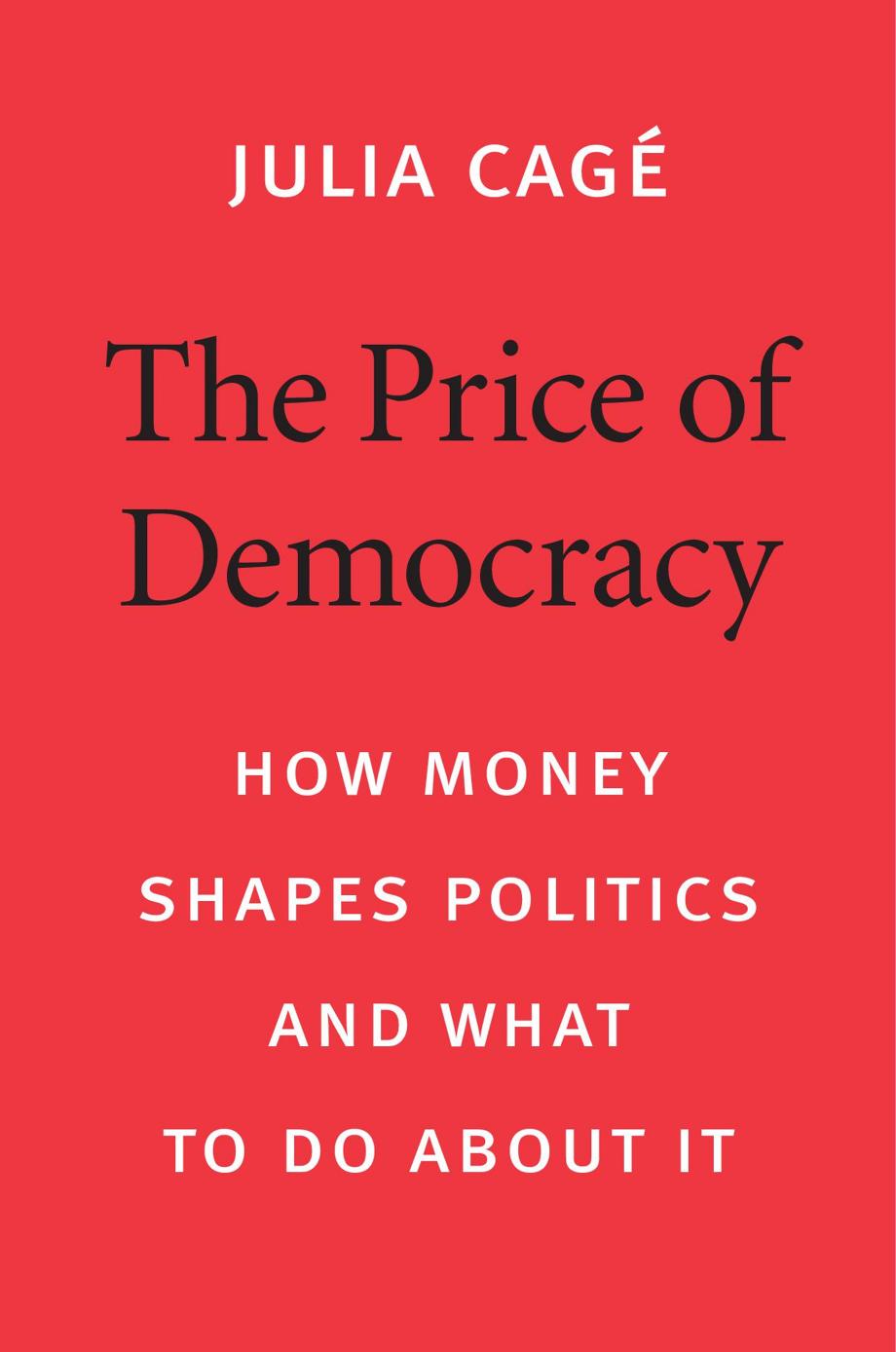The Price of Democracy by Julia Cagé

Author:Julia Cagé
Language: eng
Format: epub, pdf
Publisher: Harvard University Press
A Little French History
Of course, what I just called “German excesses” have nothing cultural about them; they stem from the law, or rather from the absence of laws imposing strict limits. In France today, companies are not permitted to make donations to political parties or campaigns. But they were in the early 1990s, and what we see in the data from those years is scarcely more heartening than the present situation in Germany.
I have collected for the years from 1993 to 1995 (the only ones for which such data are available) a full list of corporate donations compulsorily recorded in the accounts of political parties, together with—and this is the most interesting—the names of the corporate donors.55 More than 2,500 private corporate donations were received by parties in 1993, and more than 3,000 in 1994. They benefited all the major political movements, but the conservative Rassemblement pour la République (RPR) was well in the lead with 1,932 donations between 1993 and 1995 (a total of 138 million euros, including 64 million in 1993 and 62 million in 1994), followed by the Socialist Party (1,196 donations and a total of 98 million euros); the “Parti Républicain,” the Communist Party, and the centrist Union pour la Démocratie Française (UDF) paled in comparison, with 5.6, 3.8, and a little over 2 million euros respectively.
So, which companies displayed particular generosity to the French political parties? The top four consisted of Bouygues, Vivendi (then called the Société Générale des Eaux), Financière SAE-Fougerolle (better known today by the name of Eiffage), and La Lyonnaise des Eaux—all of them under contract to the state and / or local communities. Here I am talking only of contributions to political parties, but there were also numerous corporate donations to election campaigns; in the next chapter, I shall have occasion to consider, for example, the exceptional generosity of companies in the Hauts-de-Seine department bordering on Paris.
Between 1993 and 1995, the Bouygues group in all its forms—that is, Bouygues, Colas (a public works subsidiary), Sacer (a road haulage subsidiary), and so on—donated to no fewer than twenty-eight political movements, from the Radical Party to the Parti Républicain, including the Communist Party, the Socialist Party, and, of course, the RPR. It is not that the group changed its political preferences over time; it gave a good greasing each year to the whole range of political palms.
The good old checkbook again.… So, what we see in France in the early 1990s with Bouygues or Vivendi, but also Alstom and JC Decaux—nothing illegal under the regulations of the time—bears a strong resemblance to the present situation in Germany. What conclusion may we draw? The only way to change corporate practices is through new legislation; if companies are allowed to donate as much as they see fit to political life, they will continue to do just that. Why would Philip Morris deprive itself of the opportunity to persuade German politicians that nothing should be done against the ravages of tobacco? Why would German carmakers give
Download
This site does not store any files on its server. We only index and link to content provided by other sites. Please contact the content providers to delete copyright contents if any and email us, we'll remove relevant links or contents immediately.
International Integration of the Brazilian Economy by Elias C. Grivoyannis(111059)
The Radium Girls by Kate Moore(12028)
Turbulence by E. J. Noyes(8049)
Nudge - Improving Decisions about Health, Wealth, and Happiness by Thaler Sunstein(7706)
The Black Swan by Nassim Nicholas Taleb(7129)
Rich Dad Poor Dad by Robert T. Kiyosaki(6632)
Pioneering Portfolio Management by David F. Swensen(6300)
Man-made Catastrophes and Risk Information Concealment by Dmitry Chernov & Didier Sornette(6019)
Zero to One by Peter Thiel(5802)
Secrecy World by Jake Bernstein(4753)
Millionaire: The Philanderer, Gambler, and Duelist Who Invented Modern Finance by Janet Gleeson(4478)
The Age of Surveillance Capitalism by Shoshana Zuboff(4292)
Skin in the Game by Nassim Nicholas Taleb(4248)
The Money Culture by Michael Lewis(4207)
Bullshit Jobs by David Graeber(4190)
Skin in the Game: Hidden Asymmetries in Daily Life by Nassim Nicholas Taleb(4006)
The Dhandho Investor by Mohnish Pabrai(3764)
The Wisdom of Finance by Mihir Desai(3746)
Blockchain Basics by Daniel Drescher(3582)
